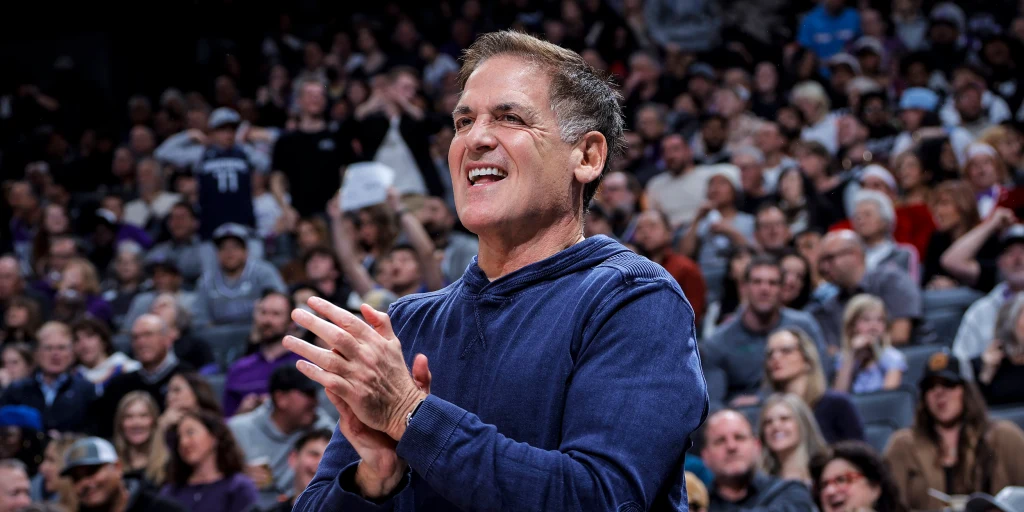Mark Cuban, the well-known investor and entrepreneur best recognized for his work on “Shark Tank,” recently voiced serious worries about the way social media algorithms affect children’s development and shape political decisions. Cuban said that algorithms have gained precedence over individuals and policy in a series of remarks posted on social media sites, highlighting the unprecedented importance of artificial intelligence (AI) in the current election cycle.
In a post on his favored platform, X, Cuban cautioned, saying, “This is the first AI-driven election season where policy and personalities mean nothing and algorithms drive everything.” His warning is a response to growing concerns about the ability of social media companies to manipulate algorithms in order to change public opinion and affect election results.
Cuban’s critique focuses on the narratives propagated by these algorithms, suggesting that what voters see and engage with on social media platforms is increasingly determined by AI-driven algorithms rather than objective reporting or genuine political discourse. He argues that individuals who design and control these algorithms wield significant political influence, potentially more than traditional campaign strategies or media coverage.
In Cuban’s view, social media platforms, especially those optimized for engagement and revenue generation, have become pivotal in modern politics. The algorithms prioritize content based on user interaction metrics like likes, shares, and comments, creating echo chambers where users are exposed to information that reinforces their existing beliefs and biases. This phenomenon, known as algorithmic bias, can distort public discourse and polarize political debates.
Beyond electoral politics, Cuban raised alarm over the impact of unpredictable algorithms on children, describing it as “terrifying.” He expressed concern that algorithms, designed to maximize user engagement and retention, could expose children to harmful content or manipulate their preferences and behaviors without parental oversight or control.
To address these concerns, Cuban proposed stringent transparency measures for social media platforms. He suggested that platforms should be required to fully disclose their algorithmic processes, including publishing complete source code, to ensure accountability and transparency. Additionally, Cuban advocated for parental controls that allow guardians to monitor their children’s online activities, including receiving daily text histories of the content their children engage with.
Cuban’s apprehensions about social media’s influence extend beyond its impact on elections and children. Following the attempted assassination of former President Donald Trump, Cuban cautioned users to be vigilant against scams and disinformation spread through social media platforms. He emphasized the importance of verifying information and avoiding fraudulent fundraisers, urging users to prioritize accuracy and caution in their online interactions.
In previous statements, Cuban has been vocal about his support for President Joe Biden and has engaged in public disputes with tech mogul Elon Musk, who has endorsed political figures and contributed financially to political causes. Cuban’s critiques of social media’s role in politics reflect broader concerns about the unchecked power of technology platforms in shaping public opinion and influencing democratic processes.
The intersection of technology and politics has increasingly come under scrutiny as social media platforms play an outsized role in disseminating information and shaping public discourse. Critics argue that the opaque nature of algorithmic decision-making poses significant risks to democracy by amplifying misinformation, fostering polarization, and undermining trust in traditional media and democratic institutions.
Efforts to regulate social media platforms have been met with mixed success, with debates centered on balancing free speech protections with the need for transparency and accountability in online environments. Policymakers and advocacy groups continue to push for reforms that enhance user privacy, combat online misinformation, and ensure fairness in digital platforms’ content moderation practices.
In the future, as technology advances and political campaigns depend more and more on digital tactics to sway public opinion and organize voters, the discussion surrounding social media’s impact on elections and society is probably going to get more heated. Cuban’s cautions highlight the necessity of strong ethical standards and legal frameworks to defend democratic processes and shield vulnerable groups—children in particular—from the possible negative effects of algorithmic manipulation.
Maintaining public trust and upholding democratic values while balancing the advantages of technology advancement is a challenge for stakeholders navigating these complicated challenges. In order to create a future where technology advances democratic principles and societal well-being rather than diminishes them, transparency, accountability, and responsible platform governance will be essential.
If you like the article please follow on THE UBJ.
